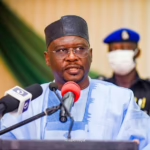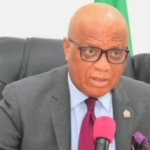Waiting over five decades for a pivotal moment is a testament to endurance, and for the University of Benin Teaching Hospital (UBTH), that moment arrived not through routine funding or delayed government action, but through the dynamic leadership of its newly appointed Chief Medical Director, Prof. Idia Nibokun Ize-Iyamu. Within just seven days of assuming office, she secured a groundbreaking ₦2.5 billion investment from the Edo State Government to establish a state-of-the-art paediatric centre-an achievement that had eluded the hospital since its inception.
This accomplishment stands out in a healthcare landscape often marked by scarcity. Nigerian teaching hospitals frequently grapple with deteriorating facilities, inconsistent financial support, and a pervasive sense of resignation toward decline, which often overshadows the expertise of their medical staff. In such challenging conditions, effective leadership transcends clinical qualifications; it demands the capacity to inspire confidence, mobilize resources, and envision transformative change. Prof. Ize-Iyamu’s approach is not to merely cope with limitations but to actively dismantle them.
Instances of visionary progress in Nigerian teaching hospitals, though infrequent, have historically reshaped the sector. For example, the Lagos University Teaching Hospital’s Cancer Centre emerged from an innovative collaboration, proving that advanced medical technology can flourish locally. Similarly, the University College Hospital in Ibadan pioneered specialised geriatric care, setting new standards for elderly treatment. These landmark projects have elevated institutional reputations, raised patient expectations, and motivated healthcare professionals to pursue excellence. The forthcoming paediatric centre at UBTH is poised to join this distinguished group, symbolizing a commitment to paediatric healthcare on par with adult medical services.
Leadership effectiveness is often measured by the promptness and impact of results. Many Nigerian officials spend their initial months acclimating or issuing cautious promises that fade away. In stark contrast, Prof. Ize-Iyamu has delivered a monumental success almost immediately. Her achievement invites parallels with transformative leaders like Dora Akunyili at NAFDAC, who swiftly tackled counterfeit drugs, or Ishaq Oloyede at JAMB, who restored integrity to a scandal-plagued institution. Their legacies endure not just because of policy changes but because they redefined public expectations. Similarly, Ize-Iyamu’s success signals a renewed ambition that transcends the mere financial grant.
The concept of legacy is particularly relevant here. The true measure of a hospital extends beyond patient numbers or bed capacity to the lasting infrastructure and culture it cultivates. A paediatric centre of this magnitude will outlive current leadership, medical trends, and even the careers of its founders. It promises to attract top-tier specialists, stimulate research, curb the outflow of patients seeking treatment abroad, and enhance the training environment for healthcare professionals. This project will embed a culture of aspiration within UBTH, setting a high standard for future administrations to uphold or exceed.
Beyond its immediate impact, this development carries significant symbolic weight. Nigerian teaching hospitals have often been perceived as outdated institutions clinging to tradition rather than embracing innovation. By securing this funding, UBTH has positioned itself as a worthy recipient of investment and a competitive hub for leading medical talent and technology. It signals a shift from being seen as a struggling entity to becoming a beacon of progress, with implications that extend well beyond Edo State. If UBTH can achieve this, it sets a precedent for other institutions nationwide.
Moreover, this early success generates momentum. If Prof. Ize-Iyamu can secure ₦2.5 billion within her first week, the possibilities over her full tenure are vast. Prospects such as forging international partnerships, engaging private sector stakeholders, and advancing digital health initiatives move from distant aspirations to tangible goals. Her leadership begins not with empty promises but with concrete results-a rarity in the Nigerian public sector.
The new era at UBTH underscores that institutional decline is not solely a matter of financial constraints but also a failure of vision. Prof. Idia Ize-Iyamu has shattered a 52-year record and, more importantly, dismantled the limiting mindset that Nigerian hospitals are fated to stagnate. While the paediatric centre will be constructed with steel and concrete, its deeper significance lies in rekindling the belief that healthcare institutions in Nigeria can dream ambitiously, attract resources, and achieve remarkable success.

















